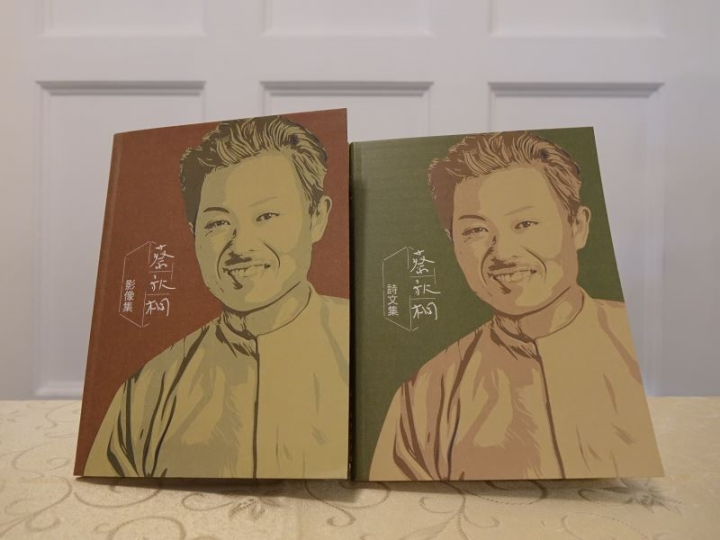
To commemorate the contributions of esteemed Taiwanese author Tsai Chiu-tung (蔡秋桐), who devoted himself to political and social movements, two publications—a collection of Tsai's poems and a compilation of photographs of Tsai—have been released in a collaboration between the National Museum of Taiwan Literature (NMTL), Academia Sinica-Institute of Taiwan History, and Yunlin County Government.
The collection of poems contains Tsai's works in different genres including Chinese poems, pieces of modern literature, proverbs, essays, novels, lyrics, and more, while other documents pertaining to his life, such as a family tree, a chronology, and symposium records, were also included. He was hailed as one of the pioneers in Taiwanese literature because most of his works were written in Taiwanese language, strongly representing regional, colloquial characteristics as well as the zeitgeist. Poems and documents created by Tsai and letters sent to him by family members and friends when Tsai was jailed during Taiwan's "White Terror" political purges are valuable objects that give people a glimpse into this period of history.
The collection of photographs included personal documents such as graduation certificates, certificates of merit, power of attorney forms, and appointment letters, as well as the images of Tsai family and his hometown Wukuai village in the early days. The collection showcases Tsai's life, education, political and social engagement from the 1910s to the 1970s, while simultaneously presenting the social and cultural changes in Taiwan before and after the war. In particular, the description and records of rural society in Yunjia Plain hold particular significance for the industrial, local, and clan history.
Born in Yunlin County, Tsai (1990-1984) was one of the most important novelists during the Japanese colonial period. At the time, modern literature and Chinese poetry were his passions and he held important positions in Chinese poetry societies—Baozhong Poetry Society (褒忠吟社) and Yuanchang Poetics Club (元長詩學研究社). He had participated in the Taiwanese Cultural Association and Petition Movement for the Establishment of a Taiwanese Parliament. After the end of World War II, he was arrested and incarcerated because he was involved in a mutiny in Yunlin. Following his release, he gradually faded from the local political scene.
For more information, please visit NMTL's website.